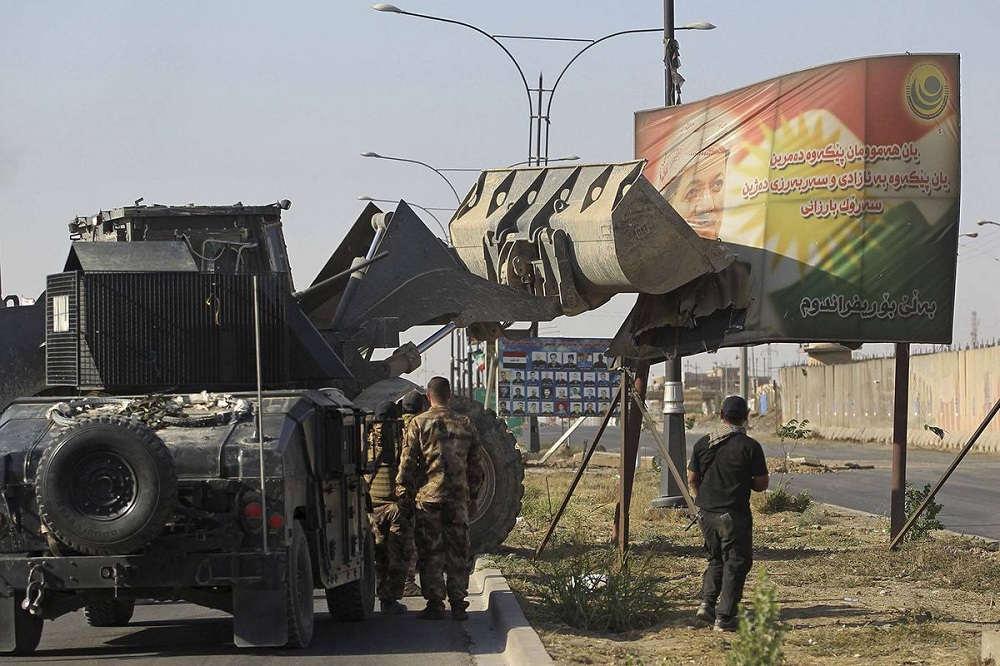A senior Iraqi military commander announced on Wednesday that Kurdish Peshmerga fighters have retreated to territories they had controlled in June 2014 before ISIS swept through northern and western Iraq.
They returned to the June 2014 line after turning over their positions in the Nineveh province to Iraqi government forces, he told Reuters.
“As of today we reversed the clock back to 2014,” the Iraqi army commander, who asked not to be identified. There was no immediate comment from the Kurdish side.
Iraqi forces declared that they had achieved their objective in pushing back Kurds from territories they had seized in their three-year war against ISIS.
Their lightning operation saw them sweep through disputed Kurdish-held territory in a punishing riposte to an independence vote last month.
“Security has been restored in sectors of Kirkuk, including Dibis, Al-Multaqa, and the Khabbaz and Bai Hassan North and South oil fields,” the federal government’s Joint Operations Command said.
“Forces have been redeployed and have retaken control of Khanaqin and Jalawla in Diyala province, as well as Makhmur, Bashiqa, Mosul dam, Sinjar and other areas in the Nineveh plains,” it added.
The Kurds have now once again returned to their three-province semi-autonomous region in the north.
Meanwhile, Iraqi forces announced that they had completed “imposing security” in Kirkuk during the 48-hour military operations.
The Iraqi advance dealt a body blow to the Kurdish region’s finances by depriving it of the output from the Kirkuk oil fields which had made up much of its exports.
Prime Minister Haidar al-Abadi ordered the recapture of Kirkuk and all other disputed areas claimed by both the Kurdistan Regional Government and the central authorities in Baghdad in response to the September 25 referendum.
The Kurds voted overwhelmingly to secede from Iraq. The referendum was rejected by Iraq, Turkey, Iran and the US.
